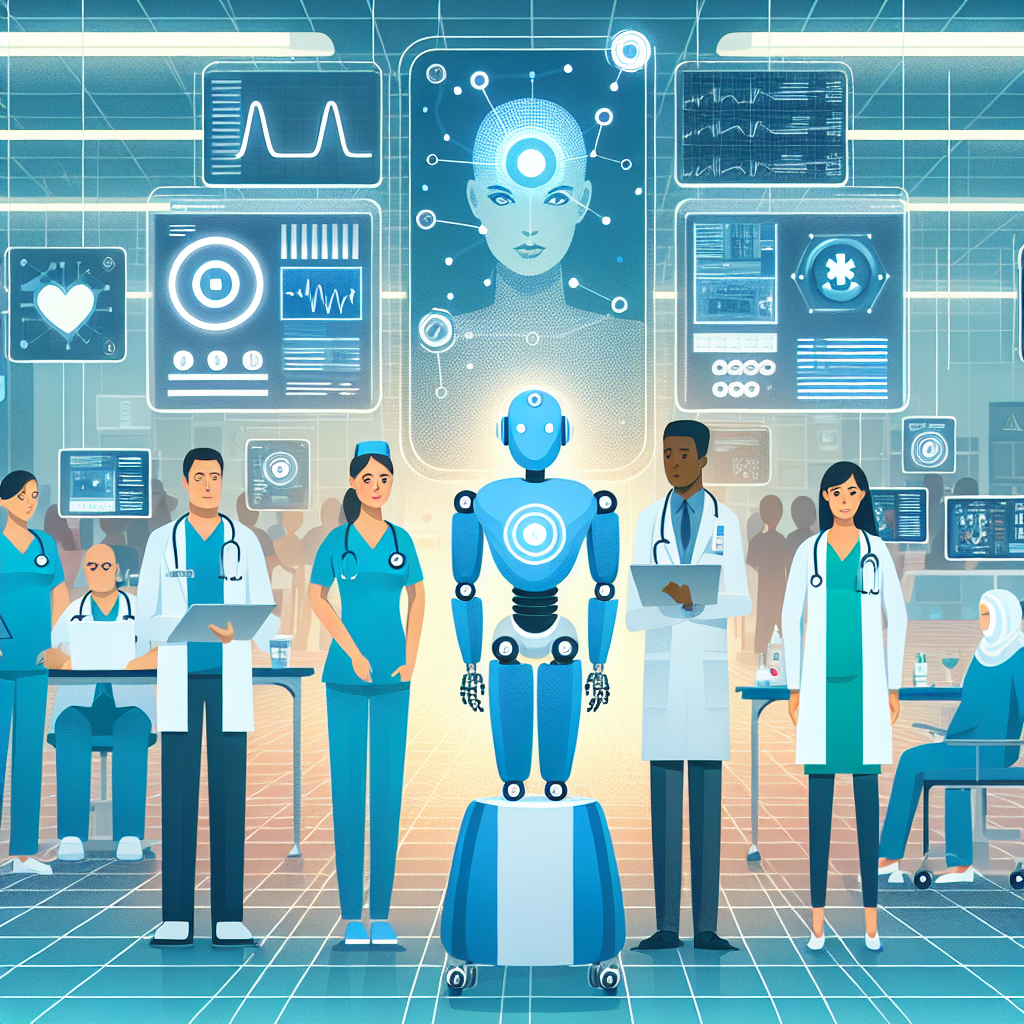Artificial Intelligence (AI) has quickly become a powerful tool in the healthcare industry, offering a wide range of benefits for healthcare providers. From improving patient care to streamlining administrative tasks, AI integration is revolutionizing the way healthcare is delivered. In this article, we will explore the numerous advantages of AI for healthcare providers and how it is transforming the industry.
1. Improved Patient Care:
One of the most significant benefits of AI integration for healthcare providers is the ability to improve patient care. AI technologies can analyze vast amounts of patient data to provide more accurate diagnoses and treatment plans. This can lead to better outcomes for patients and ultimately save lives. AI can also help healthcare providers personalize treatment plans based on individual patient needs, leading to more effective and efficient care.
2. Enhanced Diagnostic Capabilities:
AI can enhance diagnostic capabilities by analyzing medical images, such as X-rays and MRIs, to detect abnormalities that may be missed by human eyes. This can help healthcare providers make more accurate diagnoses and start treatment sooner, improving patient outcomes. AI can also assist in predicting patient outcomes based on data analysis, allowing healthcare providers to proactively manage patient care.
3. Streamlined Administrative Tasks:
AI can streamline administrative tasks for healthcare providers, saving time and resources. AI-powered systems can automate appointment scheduling, billing, and insurance claims processing, reducing the burden on administrative staff. This allows healthcare providers to focus on providing quality care to patients rather than getting bogged down in paperwork.
4. Enhanced Decision-Making:
AI can help healthcare providers make more informed decisions by analyzing data and providing insights. AI algorithms can identify trends and patterns in patient data, helping healthcare providers make evidence-based decisions. This can lead to better treatment outcomes and improved patient satisfaction.
5. Increased Efficiency:
AI integration can increase efficiency in healthcare operations by automating repetitive tasks and optimizing workflows. This can help healthcare providers deliver care more quickly and effectively, reducing wait times for patients and improving overall patient experience. AI can also help healthcare providers manage resources more efficiently, leading to cost savings and improved financial performance.
6. Remote Patient Monitoring:
AI technologies can enable remote patient monitoring, allowing healthcare providers to track patient health data in real-time from a distance. This can be especially useful for patients with chronic conditions who require continuous monitoring. AI-powered devices can alert healthcare providers to any changes in a patient’s condition, allowing for early intervention and better management of chronic diseases.
7. Personalized Medicine:
AI can help healthcare providers deliver personalized medicine by analyzing patient data to tailor treatment plans to individual needs. AI algorithms can predict how patients will respond to different treatments based on their genetic makeup, lifestyle, and medical history. This can lead to more effective treatment outcomes and improved patient satisfaction.
8. Predictive Analytics:
AI can enable predictive analytics in healthcare, allowing healthcare providers to forecast patient outcomes and identify high-risk patients. AI algorithms can analyze patient data to predict which patients are most likely to develop certain conditions or require hospitalization. This can help healthcare providers intervene early to prevent adverse events and improve patient outcomes.
9. Patient Engagement:
AI can improve patient engagement by providing patients with personalized health recommendations and reminders. AI-powered chatbots can interact with patients to answer questions, schedule appointments, and provide information about their health condition. This can help patients stay informed and engaged in their healthcare, leading to better adherence to treatment plans and improved outcomes.
10. Compliance and Security:
AI technologies can help healthcare providers ensure compliance with regulations and protect patient data. AI-powered systems can monitor and analyze data to identify any potential breaches or compliance issues. This can help healthcare providers maintain the security and confidentiality of patient information, building trust with patients and regulatory authorities.
In conclusion, AI integration offers numerous benefits for healthcare providers, from improving patient care to streamlining administrative tasks. By leveraging AI technologies, healthcare providers can enhance diagnostic capabilities, increase efficiency, deliver personalized medicine, and improve patient engagement. AI is transforming the healthcare industry, enabling healthcare providers to deliver better care and improve patient outcomes. As AI continues to advance, its potential to revolutionize healthcare delivery will only grow.
FAQs:
Q: Is AI replacing healthcare providers?
A: AI is not replacing healthcare providers but rather augmenting their capabilities. AI technologies can assist healthcare providers in making more informed decisions, improving patient care, and streamlining administrative tasks.
Q: Is AI secure for storing patient data?
A: AI technologies can help healthcare providers ensure compliance with regulations and protect patient data. AI-powered systems can monitor and analyze data to identify any potential breaches or compliance issues, helping to maintain the security and confidentiality of patient information.
Q: How can AI improve patient engagement?
A: AI can improve patient engagement by providing patients with personalized health recommendations and reminders. AI-powered chatbots can interact with patients to answer questions, schedule appointments, and provide information about their health condition, helping patients stay informed and engaged in their healthcare.
Q: Can AI help in predicting patient outcomes?
A: Yes, AI can help healthcare providers predict patient outcomes by analyzing patient data and identifying trends and patterns. AI algorithms can forecast which patients are most likely to develop certain conditions or require hospitalization, enabling healthcare providers to intervene early and improve patient outcomes.

